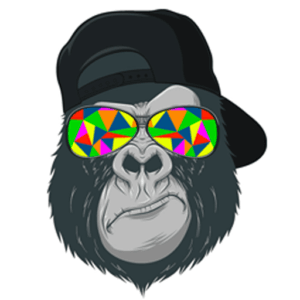AI Music Gallery
Using 100% Photoshop or starting with a base picture and manipulating it within Photoshop we get the following:
Why would anyone want to use AI to create music?
Using AI to create music offers several benefits and has gained popularity for various reasons:
Innovation and Creativity:
- AI algorithms can generate novel and unique musical compositions that may not have been explored by human composers. This innovation can lead to the creation of new genres, styles, and sonic landscapes.
Efficiency and Speed:
- AI can quickly analyze vast amounts of musical data, learn patterns, and generate compositions at a speed that surpasses human capabilities. This efficiency can be particularly valuable in the fast-paced music industry.
Exploration of New Sounds:
- AI allows musicians and producers to experiment with unconventional sounds and arrangements, pushing the boundaries of traditional music. This exploration can lead to the discovery of innovative and avant-garde musical expressions.
Collaboration with Human Artists:
- AI tools can serve as collaborative partners for human musicians, assisting in the creative process. This collaboration can result in hybrid compositions that blend the unique strengths of both AI and human creativity.
Personalization and Customization:
- AI algorithms can analyze individual preferences and create personalized music tailored to specific tastes. This level of customization can enhance user experiences in areas such as gaming, meditation, or virtual environments.
Productivity and Inspiration:
- AI-generated music can be used as a source of inspiration for musicians facing creative blocks. It can provide a starting point or spark ideas that artists can further develop and refine.
Cost-Effectiveness:
- AI-generated music can be a cost-effective solution for projects with budget constraints. It eliminates the need for hiring session musicians or composers, making it an attractive option for independent creators and small productions.
Adaptation to Trends and Styles:
- AI can quickly adapt to current music trends and styles, allowing creators to stay relevant in a rapidly changing industry. This adaptability can be particularly useful for commercial applications such as advertisements and film scores.
Generative and Procedural Music:
- AI excels at generative and procedural tasks, enabling the creation of dynamic, evolving, and adaptive musical compositions. This is valuable for applications like video games, where music needs to respond to player actions and events.
Accessibility to Non-Musicians:
- AI tools often come with user-friendly interfaces, making music creation accessible to individuals without formal musical training. This democratization of music production can lead to increased diversity and inclusivity in the creation of music.
Algorithmic Composition Techniques:
- AI can apply advanced algorithmic composition techniques, leading to sophisticated harmonic progressions, intricate melodies, and complex rhythmic structures that may challenge or inspire human composers.
While AI-generated music is not a replacement for the rich emotional depth and cultural context that human musicians bring to their craft, it complements human creativity and opens up new possibilities in the ever-evolving landscape of music production.
LoFi beats & AI Images
Used for LoFi background
Ready to take your web presence to the next level? Contact us today to schedule a consultation and learn more about how our web design and digital marketing services can help you grow your brand online!


